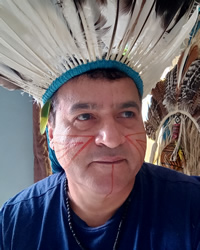Pipipa in Brazil

Photo Source:
Anonymous
|
Send Joshua Project a map of this people group.
|
| People Name: | Pipipa |
| Country: | Brazil |
| 10/40 Window: | No |
| Population: | 1,500 |
| World Population: | 1,500 |
| Primary Language: | Portuguese |
| Primary Religion: | Ethnic Religions |
| Christian Adherents: | 0.00 % |
| Evangelicals: | 0.00 % |
| Scripture: | Complete Bible |
| Ministry Resources: | Yes |
| Jesus Film: | Yes |
| Audio Recordings: | Yes |
| People Cluster: | Amazon |
| Affinity Bloc: | Latin-Caribbean Americans |
| Progress Level: |
|
Introduction / History
There are efforts by the Brazilian government to protect indigenous people from missionaries, loggers and other outsiders who can potentially introduce diseases for which native peoples have no immunity. However well-meaning the effort is, it keeps the Pipipa and other indigenous peoples from hearing about and responding to Jesus Christ.
What Are Their Lives Like?
Some Pipipa live outside their homeland and they can potentially be reached by Brazil's spiritually healthy Church. New believers among them could return to their homeland and help build a movement to Christ among this unreached people group.
The Pipipa have a chief and a shaman. The shaman, who knows how to navigate the spirit world, often has more power than the political chief.
What Are Their Beliefs?
How do you reach a people if they feel threatened by religious change? That is the situation for the Pipipa people of Brazil. Their identity is deeply rooted in their spirit-based ethnic religion. Leaving their traditional religion is viewed by their community as one more part of their culture robbed from them.
What Are Their Needs?
The Pipipa need help in adjusting to 21st century Brazil. If they are not taught marketable skills, they are in danger of losing everything.
Prayer Points
Pray for physical and spiritual protection for the Pipipa. Pray for Christ to reveal himself to Pipipa elders, leading them to open their community to the King of kings. Pray for a movement to Christ among them and other indigenous peoples in Brazil.